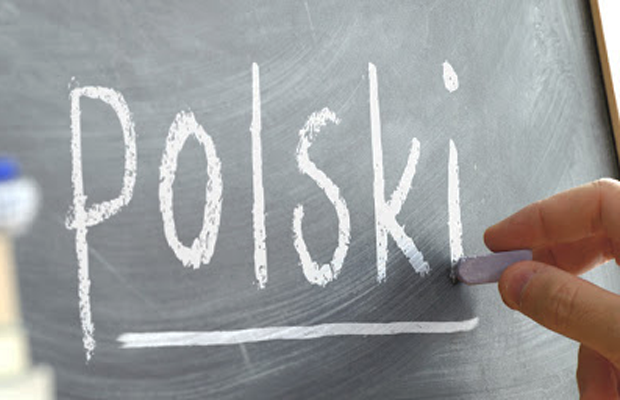The Top Ten Most Difficult Languages to Learn
In today's joined-up world, the more languages you can speak, the greater range of choices and opportunities you'll have. The problem is that many of the world's major languages are difficult to learn — at least for English speakers. How difficult a language is really depends on your background and experience. Any language is easy enough if you grow up speaking it (bear in mind that English is considered an extremely difficult language for non-native speakers), but the further it is from what you know, the harder you're likely to find it.
So what are the top ten most difficult languages for an English speaker to learn?
 |
1. Mandarin Chinese The mother tongue of nearly a billion and a second tongue to around 200 million more, Mandarin is the official language of the world's second-biggest economy. So why isn't it on every school syllabus? Mandarin presents several significant challenges. Where many languages use a different alphabet, Mandarin (and all the other Chinese languages) uses a completely different approach to writing, where symbols represent the sense, rather than the sound. Add to this that words are built up from separate syllables that can have different meanings depending on which of several tones (the pitch of your voice) is used, the challenge to English speakers is substantial. |
 |
2. Korean A mysterious language with no generally accepted relatives, Korean is the official language of both Koreas, although westerners generally have most contact with South Korea. It has around 80 million native speakers. Korean is also written in an entirely different system and, although this is a more conventional alphabet, it has no relation to any western alphabet. It's grammar is complex for an English speaker to follow, since it's agglutinative — i.e. based entirely on adding bits to the basic word to modify its meaning. Nevertheless, considering the power of the South Korean economy, it's well worth learning. |
 |
3. Japanese The origins of Japanese are also confusing, but with 128million native speakers in a major world economy, it's a prime target to learn. It's worth remembering that in countries like Japan, China and Korea, courtesy is of immense importance, so that speaking the language to some level will open many doors. Like Korean, Japanese is an agglutinative language, but it has a traditional writing system based on Chinese characters. However, since the language has a very different structure from Chinese, there are many additional characters to indicate the added syllables. |
 |
4. Xhosa One of the eleven official languages of South Africa, spoken as a native language by 16% of the population, the most famous native speaker of Xhosa was Nelson Mandela. Xhosa presents several difficulties to an English speaker. Like Japanese and Korean, it's an agglutinative language, and like Mandarin, it has tones — though only two. The hardest element, though, is that in addition to consonants and vowels, Xhosa uses a class of sounds called "clicks". These are rather like the sound you make when you click your tongue in disapproval, but there are eighteen distinct clicks to get your tongue round in Xhosa. |
 |
5. Arabic The native language of around 350 million, with almost as many speaking it as a second language, Arabic is at the heart of one of the most prosperous, if troubled, parts of the world. It exists in several very different forms, but Modern Standard Arabic is widely understood throughout the Arabic-speaking world. There are two major difficulties in learning Arabic — its writing system and its sounds. The writing is an alphabet very different from ours and with letters that can take several different forms. It's also written right-to-left and contains only consonants. As far as the sounds go, many of Arabic's consonants are sounds that don't appear in any western language. |
 |
7. Finnish Another EU language with no connection to most of the others, Finnish is the language of an economy that punches above its weight (including the Nokia Corporation), making it worth considering as a language to learn. Compared with the related Hungarian, Finnish grammar is less complex — it has a mere 15 cases, though that's quite enough for most English speakers. It's also agglutinative (as Hungarian also is), meaning that many of the words actually used in a sentence can be extremely long. |
 |
8. Russian Whereas all the languages mentioned so far have no known relationship with English, Russian is at least distantly related, both being members of the Indo-European language family. As the official language of Russia, it's the native tongue of 150 million and a second language for more than 100 million, as well as being one of the six official languages of the UN. Russian is written in the Cyrillic alphabet which, while distantly related to our alphabet, can be confusing. A few letters look the same, but some actually look like different letters in our alphabet. The "CCCP" of the former Soviet Union, for instance,was actually "SSSR". |
 |
9. Polish A Slavonic language like Russian, Polish has 45 million native speakers, making it one of the more significant languages within the EU. In many parts of the UK, there are significant populations of people from Polish descent. Unlike Russian, Polish is written in the same alphabet as English, but in some ways that makes it more off-putting. Polish is notorious for long clusters of consonants with no vowels in between, which English speakers can find it extremely challenging to pronounce. Its grammar is also complex, like Russian, but paradoxically the word-order can often be varied in ways that seem random. |
 |
10. German Compared with making sense of Chinese characters or Xhosa clicks, German is fairly straightforward— but it still has its challenges. Nevertheless, with more than 90 million people speaking it as a native language, German is the most-spoken language within the EU. German is actually quite a close relative of English, but the two languages have gone their separate ways over the centuries, and it now presents problems to the English speaker. Its grammar is more formal and complex than other Western European languages (though less so than Russian or Polish) and the word-order has a logic of its own, with the verb often being kept back to the end of the sentence. |
All these ten languages present significant challenges to learn, yet any one of them could be invaluable, whether for your career, travel or appreciation of worldwide culture. The good news is that you can hire private tutors who'll help you over the difficulties. Register with TutorExtra to find them.


